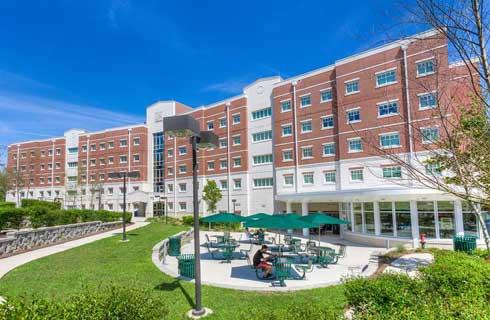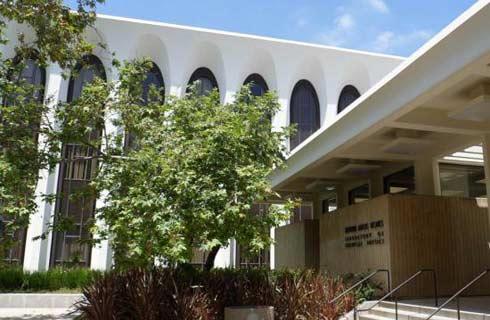心理学文学硕士-行为神经科学
Master of Arts (MA) Psychology with emphasis in Behavioral Neuroscience

学历文凭
Masters Degree

专业院系
College of Arts and Sciences

开学时间

课程时长

课程学费

国际学生入学条件
Successful applicants must have completed a baccalaureate degree with a minimum of 15 undergraduate hours in psychology before beginning the master’s program.
Entrance examinations
Acceptable Graduate Record Examination scores for the General test is required
International students are required to document English proficiency by providing scores from an internationally accepted standardized examination before a decision is made on admission.
Grade Point Average
Minimum of 3.0 on 4.0 scale overall and 3.2 in psychology courses.
IDP—雅思考试联合主办方

雅思考试总分
了解更多
雅思考试指南
- 雅思总分:
- 托福网考总分:
- 托福笔试总分:
- 其他语言考试:
CRICOS代码:
申请截止日期: 请与IDP顾问联系以获取详细信息。
课程简介
UMSL’s Department of Psychological Sciences offers students ample opportunities to conduct research in several human experimental laboratories furnished with leading psychophysiological equipment. Additionally, the department operates three facilities – Community Psychological Services, the Center for Trauma Recovery and Children’s Advocacy Services of Greater St. Louis – to provide a wide array of training opportunities for students in psychology while providing psychological assessment services for citizens in the region. Although the name may imply a narrow market of opportunities, a Master of Arts in Psychology with an emphasis in Behavioral Neuroscience can open the door to multiple career fields and industries. In fact, there is a high demand for employees with the skills this degree program offers. Students in the program receive intense training in the areas of critical thinking, application of research methods and analyses, scientific writing, teaching, psychological sciences, communication, ethics, social neuroscience, clinical neuropsychology, cognitive and affective processes, quantitative methods, human learning and memory, neuropsychological assessment, emotions and the brain, human neuroanatomy and psychopharmacology. Upon completion of the program, graduates will be prepared to: Demonstrate an integrative understanding of psychological concepts, theories, research and historical trends in behavioral neuroscience, while applying this knowledge in research and teaching. Explain and apply the scientific method using a variety of research paradigms to solve problems in behavioral neuroscience, and articulate how the solutions rely on scientific reasoning. Evaluate, identify and apply appropriate research methods in behavioral neuroscience, including research design, data analysis and data interpretation. Evaluate and apply ethical principles to behavioral neuroscience research and teaching according to national and international standards, while adopting social and ethical values that build community at local, national and global levels.
相关申请
 预科
预科 奖学金
奖学金 实习机会
实习机会 在校学习
在校学习 跨境学习
跨境学习 校园授课-线上开始
校园授课-线上开始 在线/远程学习
在线/远程学习
本校相关课程

性别研究研究生证书
学历文凭
Graduate Certificate
开学日期
课程费用总额


中学教学证书研究生证书
学历文凭
Graduate Certificate
开学日期
课程费用总额


非营利组织管理与领导力研究生证书课程
学历文凭
Graduate Certificate
开学日期
课程费用总额


营销管理研究生证书
学历文凭
Graduate Certificate
开学日期
课程费用总额


物流与供应链管理研究生证书
学历文凭
Graduate Certificate
开学日期
课程费用总额


人力资源管理研究生证书
学历文凭
Graduate Certificate
开学日期
课程费用总额

其他相关课程

Certificate in Applied Behavior Analysis
 德克萨斯农工大学学院站分校
德克萨斯农工大学学院站分校学历文凭
Graduate Certificate
开学日期
课程费用总额


Master of Science in Behavior Analysis
 塞勒姆州立大学
塞勒姆州立大学学历文凭
Masters Degree
开学日期
课程费用总额


Doctor of Philosophy in Psychology - Systems and Behavioral Neuroscience
 弗吉尼亚大学
弗吉尼亚大学学历文凭
Ph.D.
开学日期
课程费用总额


Master of Public Health (Traditional) - Social and Behavioral Sciences
 佛罗里达大学
佛罗里达大学泰晤士高等教育世界大学排名:136
学历文凭
Masters Degree
开学日期
课程费用总额


行为科学文学士学位(迪尔伯恩)
 密歇根大学安娜堡分校
密歇根大学安娜堡分校学历文凭
Bachelor Degree
开学日期
课程费用总额


跨学科研究应用科学学士学位-人性
 湖首大学
湖首大学泰晤士高等教育世界大学排名:1080
学历文凭
Bachelor Degree
开学日期
课程费用总额



























